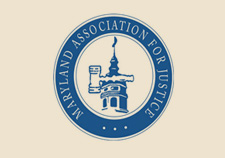There is an important bill sitting on the President’s desk awaiting his approval. H.R. 4067, deals with the Centers for Medicare & Medicaid Services (CMS) enforcement of direct supervision on critical access hospitals (CAH) located throughout the country. CAHs serve rural areas, and are different in size and scope than the acute care hospitals we see throughout Maryland. The CMS may designate a hospital as a CAH if it fits the following criteria:
- It may only have up to 25 beds
- It must be located at least 35 miles away from any other CAH or acute care hospital
- A patient seeking inpatient care must stay no longer than 96 hours (on average)
- Emergency care must be offered 24 hours a day, 7 days a week
Critical access hospitals are reimbursed by Medicare based on their cost, as opposed to following a standard set of reimbursements. The CMS has put a rule into place that these types of small hospitals must have physicians present to directly supervise certain outpatient procedures, such as inserting a catheter. The rule was put into effect starting January 1, 2014, but has been subjected to delays for the past year.
H.R. 4067 allows the Secretary of Health and Human Services to exempt certain CAHs from that rule for the rest of 2014; a new bill is currently being proposed – Protecting Access to Rural Therapy Services (PARTS) Act (H.R. 2801/S. 1143) – that would allow for general supervision as opposed to direct supervision in the future.
Why this bill matters
The American Hospital Association (AHA) does not support the CMS if small and rural hospitals are required to hire additional staff or personnel in order to comply with the rule, they may need to cut back on their life-saving services. For example: if a direct supervisor is required to administer a vaccine, and the CAH cannot afford to hire that supervisor, then children in that region may be unable to obtain the vaccinations they need. The same goes for people who need dialysis or chemotherapy treatments.
Furthermore, the AHA claims that “Direct supervision is not a requirement of the Medicare hospital Conditions of Participation (CoP).” Different hospitals are assigned different CoPs, and the AHA considers this new rule “clinically unnecessary.”





